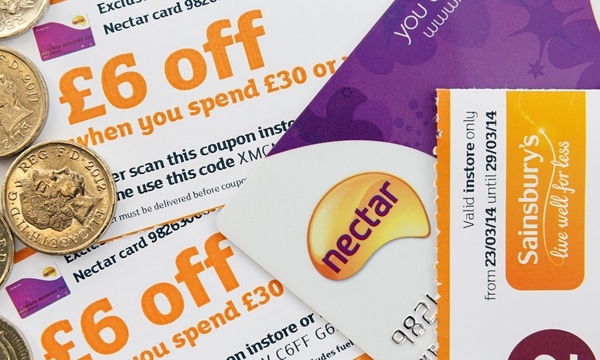With the starting pistol fired on the General Election in the UK at the start of April 2015, political commentators are reviewing the first full term coalition government in the UK since the second world war. Opinions are mixed but however sceptical people are about coalition governments, it does not mean that coalitions should be universally scorned.
Take loyalty schemes. The largest loyalty schemes in the UK all revolve around retailers, typically the largest supermarkets (Tesco and Sainsbury‘s), chemists (Boots) and coffee shops (Starbucks and Costa). Smaller retailers find it hard enough to compete with the larger retailers with their millions in marketing without feeling that they are shut out of the loyalty game altogether. So what can they do to overcome this?
The first obvious issue with loyalty schemes is the volume of different schemes available. Despite various attempts to expand and extend the reach of key loyalty schemes they are generally still associated with large retailers. My wallet is currently bulging with eight different loyalty cards from different organisations. Were I to take up every one offered to me I suspect they would number closer to 20.
Good loyalty schemes have certain benefits:
- You can amass points quickly and simply
- You have the widest possible choice as to what to spend the points on – not necessarily just goods from a particular store
- You benefit from the “surprise” element of an unexpected bonus or incentive
Without these three factors, consumers won‘t bother. The likes of Tesco Clubcard and Nectar benefit from the fact that a large volume of shopping takes place in supermarkets, making it quick to amass points. Because supermarkets sell pretty much anything, they can also offer rewards on a wide range of goods.
The smaller retailer cannot compete on this basis. Instead it makes sense to take advantage of a universal loyalty scheme such as epoints (www.epoints.com). This kind of scheme enables retailers to offer a loyalty scheme both online and offline that can work across multiple retailers.
The benefits of such a coalition scheme are clear: first the scale of the loyalty programme can be much larger than one a retailer could achieve alone. It can provide the magical combination of amassing points quickly and easily as well as offering a wide range of rewards.
Many loyalty schemes fall short for consumers who don‘t see any value materialise for their participation. A fact highlighted by the recent stat that over £1.3bn of value in loyalty schemes is currently unspent in the UK. epoints has brought together millions of rewards for their members to access and spend via its online catalogue much in the same way as you would shop online.
In the case of epoints we have even extended the scheme to reward people for watching videos or playing games online. It is easy to see how this could be extended by a retailer to incorporate rewards for follows and likes on social media or spending time on their website.
Most important of all it enables smaller retailers to join forces to compete with larger companies. Indeed flexibility is a key consideration here. Loyalty schemes with the widest range of rewards can be relevant to a number of different scenarios. We have already seen epoints taken up by plumbing brand Ideal Standard as a vehicle to help drive purchases of bathroom hardware. It has also been adopted by one of the major high street retailers as a staff incentive scheme to reward hard work and success within the retailer itself (across their 17000 store staff members). But these are potentially the tip of the iceberg.
Towns and cities that wish to breathe new life into their hi




